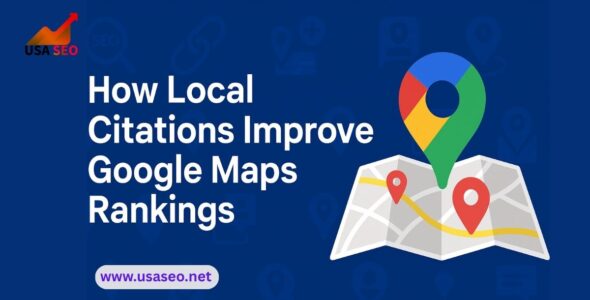Local SEO plays a crucial role in increasing visibility by optimizing a business’s online presence for location-based searches. It ensures that when potential customers search for products or services in a specific area, the business appears in local search results, Google Maps, and other location-based platforms.
Local SEO involves optimizing a website with relevant keywords, creating and managing Google My Business profiles, acquiring local reviews, and building local backlinks. These strategies help businesses connect with nearby customers who are ready to make purchases or engage with services. By focusing on local relevance, businesses can improve their rankings, attract more foot traffic, and enhance their overall visibility within their community.
Introduction
Local SEO is a vital strategy for businesses looking to enhance their online presence within a specific geographic area. As consumers increasingly turn to search engines like Google to find products and services near them, ensuring that a business appears in local search results has become essential for driving traffic and sales. By optimizing for location-based searches, businesses can target a relevant audience, increase visibility, and gain a competitive edge.
Local SEO techniques, such as managing Google My Business listings, acquiring local reviews, and using location-specific keywords, help businesses establish their relevance and connect with nearby customers who are ready to engage.

Understanding Local SEO
Local SEO refers to the process of optimizing a business’s online presence to rank higher in search results for location-based queries. Unlike traditional SEO, which focuses on broader search rankings, local SEO targets specific geographic areas to connect businesses with nearby customers. Key strategies include optimizing a Google My Business profile, ensuring accurate business information (such as name, address, and phone number), and using location-specific keywords on the website and content.
Additionally, local backlinks and acquiring customer reviews can significantly improve a business’s credibility and visibility. Google’s local search algorithms consider factors like proximity, relevance, and prominence, which means businesses that consistently update their online information and engage with their local community have a better chance of ranking higher in local search results. By focusing on these local aspects, businesses can increase their chances of being discovered by potential customers in their area, driving both foot traffic and online engagement.
How Local SEO Boosts Visibility
Local SEO boosts visibility by ensuring that a business appears in location-specific search results, making it easier for nearby customers to find it. When a user searches for a product or service near them, Google prioritizes businesses that have optimized their online presence for local queries. Key tactics include optimizing a Google My Business profile, ensuring the business’s name, address, and phone number (NAP) are consistent across all platforms, and using location-targeted keywords in website content.
Positive customer reviews and local backlinks also enhance credibility and search rankings. By improving a business’s online presence in this way, local SEO increases its chances of showing up in Google Maps, the local 3-pack, and organic search results, ultimately driving more targeted traffic. This localized approach helps businesses attract more local customers, both online and in-person, significantly enhancing their visibility within the community.

Key elements of local SEO include
- When implementing: local SEO strategies, avoiding common mistakes is crucial for maximizing effectiveness. Some key mistakes to avoid include
- Inaccurate or Inconsistent NAP Information: Having inconsistent business Name, Address, and Phone number (NAP) across different online platforms can confuse search engines and customers, negatively impacting local rankings.
- Neglecting Google My Business: Failing to claim or properly optimize a Google My Business (GMB) profile can significantly hinder a business’s visibility in local search results and Google Maps. Ensure all details are up-to-date and complete.
- Ignoring Customer Reviews: Not actively encouraging or responding to customer reviews can hurt your online reputation. Reviews play a vital role in local rankings and influence consumer trust.
- Overlooking Mobile Optimization: Since many local searches are conducted on mobile devices, not having a mobile-friendly website can lead to a poor user experience and reduced visibility.
- Focusing Only on Big Keywords: Relying solely on broad keywords rather than incorporating location-specific terms can make it difficult to rank in local searches. Using relevant local keywords is crucial.
- Lack of Local Citations: Failing to list your business in local directories and citation sites reduces the chance of building local relevance and authority.
- Ignoring Local Content: Not tailoring website content to reflect local relevance and community involvement can limit engagement with local customers.
By avoiding these mistakes, businesses can enhance their local SEO efforts, improve search rankings, and attract more relevant customers.
The Benefits of Local SEO
Local SEO offers numerous benefits that can significantly impact a business’s success. By optimizing for location-based searches, businesses can increase their visibility to nearby customers who are actively searching for relevant products or services. This improved visibility leads to higher website traffic, greater foot traffic to physical stores, and ultimately, more sales. Local SEO also helps businesses rank higher in search results, particularly in Google’s local 3-Pack and Google Maps, which are crucial for attracting local customers.
Furthermore, local SEO enables companies to concentrate on an audience that is more appropriate and is less costly than typical advertising techniques. Positive customer reviews and accurate online business information build trust and credibility, making potential clients more likely to choose the business. With many searches happening on mobile devices, local SEO ensures businesses reach customers on the go, increasing conversion opportunities.

Common Local SEO Mistakes to Avoid
- When implementing: local SEO strategies, avoiding common mistakes is crucial for maximizing effectiveness. Some key mistakes to avoid include
- Inaccurate or Inconsistent NAP Information: Having inconsistent business Name, Address, and Phone number (NAP) across different online platforms can confuse search engines and customers, negatively impacting local rankings.
- Neglecting Google My Business: Failing to claim or properly optimize a Google My Business (GMB) profile can significantly hinder a business’s visibility in local search results and Google Maps. Ensure all details are up-to-date and complete.
- Ignoring Customer Reviews: Not actively encouraging or responding to customer reviews can hurt your online reputation. Reviews play a vital role in local rankings and influence consumer trust.
- Overlooking Mobile Optimization: Since many local searches are conducted on mobile devices, not having a mobile-friendly website can lead to a poor user experience and reduced visibility.
- Focusing Only on Big Keywords: Relying solely on broad keywords rather than incorporating location-specific terms can make it difficult to rank in local searches. Using relevant local keywords is crucial.
- Lack of Local Citations: Failing to list your business in local directories and citation sites reduces the chance of building local relevance and authority.
- Ignoring Local Content: Not tailoring website content to reflect local relevance and community involvement can limit engagement with local customers.
How to Implement Local SEO Strategies
To implement effective local SEO strategies, start by claiming and optimizing your Google My Business (GMB) profile, ensuring all business details like name, address, phone number, and hours are accurate and up-to-date. Consistency in your Name, Address, and Phone number (NAP) across all platforms—your website, social media, and online directories—is essential for building credibility. Incorporate local keywords throughout your website’s content, Meta tags, and titles to improve relevance in local searches.
Building local citations by listing your business on trusted local directories and websites can further boost your authority. Encourage customer reviews on platforms like Google and Yelp, and engage with them to build trust. Additionally, ensure your website is mobile-friendly, as many local searches are done on mobile devices. Finally, create localized content and obtain backlinks from local sources to further enhance your visibility and connection with the community.

FAQs Frequently Asked Questions
The following are a few local SEO-related commonly asked questions (FAQs):
What is local SEO?
Local SEO is the process of optimizing your online presence to rank higher in search results for location-based queries, helping businesses attract more customers in their local area.
Why is local SEO IMPORTANT?
Local SEO helps businesses increased visibility in local search results, drive more relevant traffic, and connect with nearby customers who are actively searching for your products or services.
How can I improve my local SEO RANKING?
To improve local SEO, focus on optimizing your Google My Business profile, ensuring consistent NAP (Name, Address, Phone number) information across platforms, using location-based keywords, gathering positive reviews, and obtaining local backlinks.
What are local citations?
Local citations are online mentions of your business’s name, address, and phone number (NAP) on other websites, directories, and social media platforms. These help improve local search rankings and build credibility.
How do customer reviews affect local SEO?
Customer reviews play a significant role in local SEO as they improve trust and visibility. Positive reviews boost your credibility, while responses to reviews show engagement, which can enhance your local search ranking.
Does local SEO need an internet presence that is compatible with mobile devices?
Indeed, as many local searches are done on smartphones and tablets, having a responsive site is essential for local SEO. A responsive website provides a better user experience and can improve your rankings in local search results.
Where can I opt for local phrases on my business’s website?
Local keywords are location-specific terms that reflect your business and services. Include the name of your city, neighborhood, or region along with your product or service (e.g., best Italian restaurant in [city]). Use tools like Google Keyword Planner or local search trends to find the best keywords.
What are local backlinks, and how do they help SEO?
Local backlinks are links from local businesses, websites, and blogs that point to your site. These links improve your website’s authority and relevance, signaling to search engines that your business is an integral part of the local community.
Conclusion
In conclusion, local SEO is an essential strategy for businesses looking to increase their visibility and attract customers within a specific geographic area. By optimizing key elements like Google My Business, ensuring NAP consistency, using local keywords, and acquiring customer reviews and local backlinks, businesses can significantly improve their rankings in location-based search results. The benefits of local SEO are clear it enhances online visibility, drives more targeted traffic, and helps build trust with the local community. As more customers turn to online searches for nearby services and products, investing in local SEO is a powerful way to stay competitive and connect with the right audience.
 My Account
My Account 


